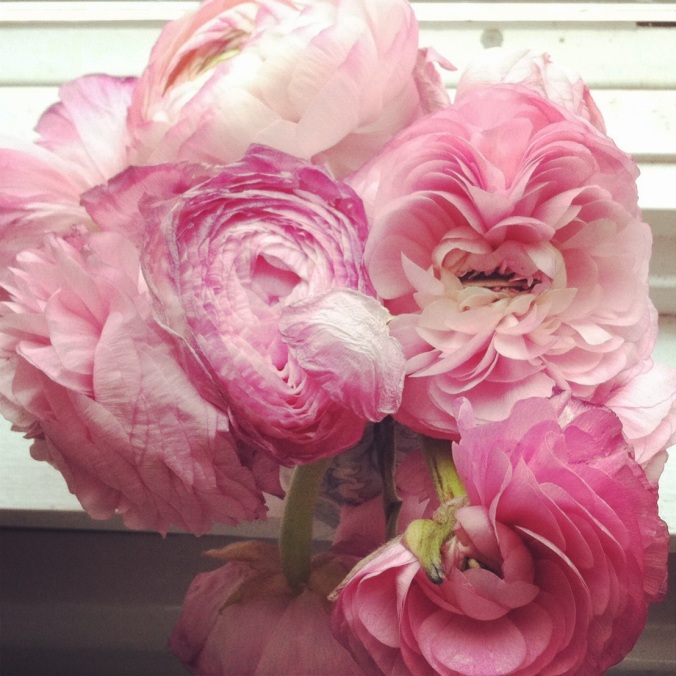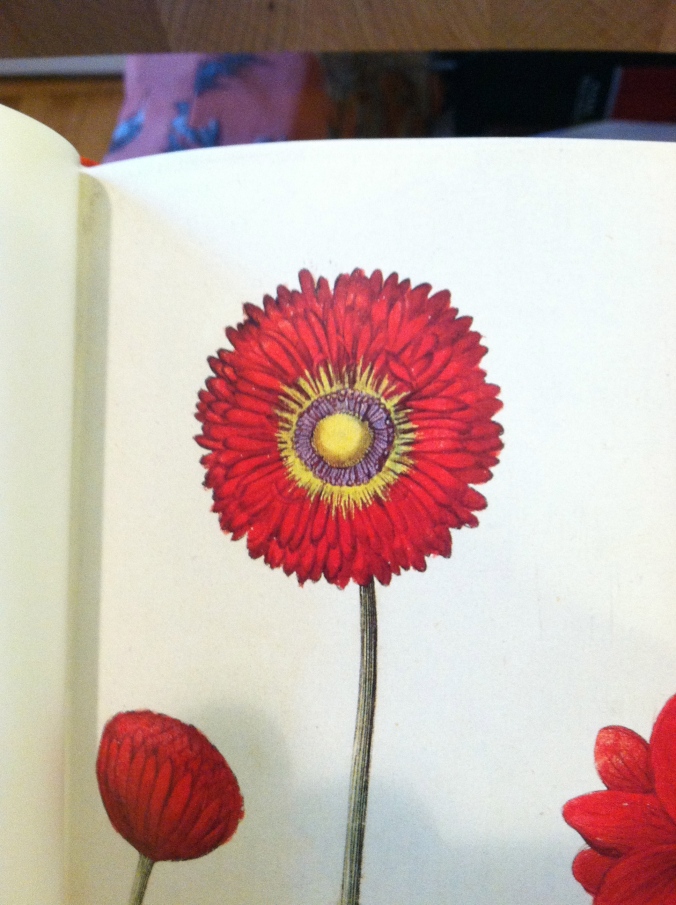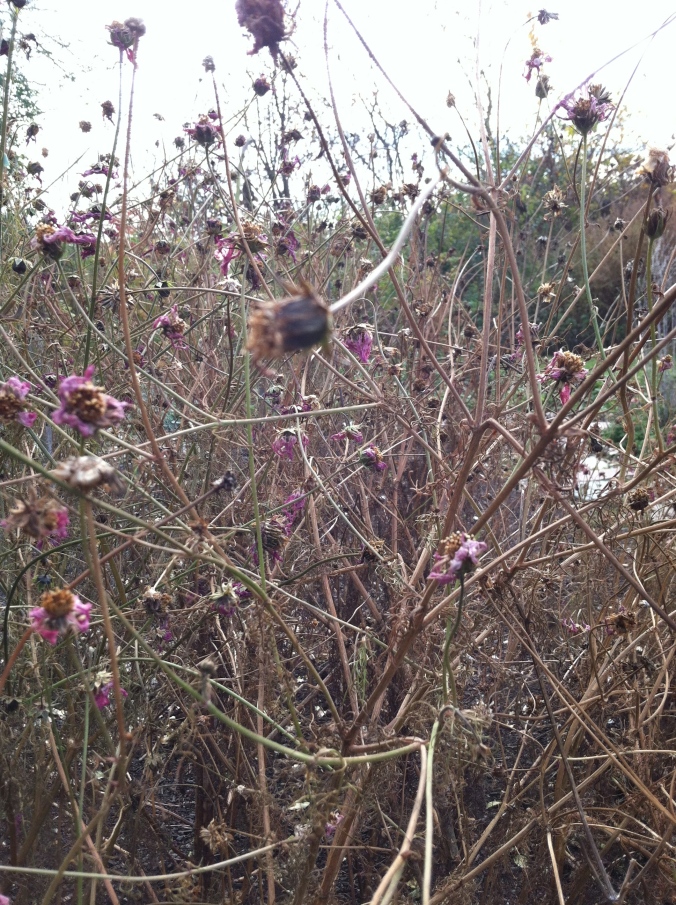I brought these beautiful ranunculus to class yesterday to pull them apart to see all their beautiful parts.
Each student got a couple to pull apart and draw. I wanted them to peel away the hundreds of tiny, soft, delicate petals one by one. I asked them to shake the pollen out, to really see what color it was, to get all the way inside to actually open up the stamen to peer into the center of the beauty of it all.
I asked them to draw what they saw, not what they thought they were supposed to see. That’s always so difficult. I asked them to draw with their eyes closed, to visualize what they had seen, to recollect that image.
One guy said, “I am 57 years old and I have never drawn.” He said when he was a little boy he never got to draw at home or at school.
This is what he drew.
I then showed the students botanical illustrations from the 1600s by Basilius Besler.
I thought about the man drawing these flowers 400 years ago and others coloring them and the hours of daylight or candle light or strain to eyes and hand that it took to produce these hundreds of plates. I think what a gift to us 400 years later.
My student told me that when he leaves prison he wants to come back as a mentor. I asked how he would help with his mentoring and he said “I would tell them that there is only one way out of here and its through the front door.”
These conversations that we have while the men draw bring out an honesty that is almost heavy enough to pull apart, draw and inspire with their beauty.




